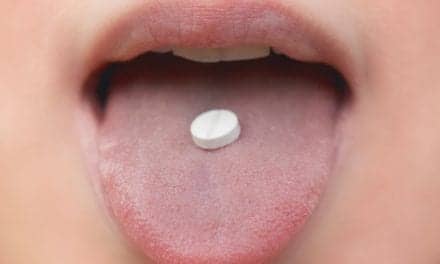Severe asthma can be controlled using biologic therapies, without the addition of regular high-dose inhaled steroids which can have significant side effects, according to a new study published in The Lancet.
The findings from the multinational SHAMAL study demonstrated that 92% of patients using the biologic therapy benralizumab (Fasenra) could safely reduce inhaled steroid dose, and more than 60% could stop all use.
The study’s results could be transformative for severe asthma patients by minimizing or eliminating the unpleasant and often serious side effects of inhaled steroids, according to the researchers. Such side effects include osteoporosis which leads to increased risk of fractures, diabetes, and cataracts.
“Biological therapies such as benralizumab have revolutionized severe asthma care in many ways, and the results of this study show for the first time that steroid-related harm can be avoided for the majority of patients using this therapy,” says David Jackson, head of the Severe Asthma Centre at Guy’s and St Thomas’ and professor of respiratory medicine at King’s College London who led The SHAMAL study, in a release.
Benralizumab is a biologic therapy that reduces the number of inflammatory cells called eosinophil. This is produced in abnormal numbers in the airway of patients with severe asthma and is critically involved in the development of asthma attacks. Benralizumab is injected every four to eight weeks and is available in specialist NHS asthma centers.
The SHAMAL study took place across 22 sites in four countries: the United Kingdom, France, Italy, and Germany. The 208 patients were randomly assigned to taper their high-dose inhaled steroid by varying amounts over 32 weeks, followed by a 16-week maintenance period.
Approximately 90% of patients experienced no worsening of asthma symptoms and remained free of any exacerbations throughout the 48-week study. Similar studies to SHAMAL will be necessary before firm recommendations can be made regarding the safety and efficacy of reducing or eliminating high-dose steroid use with other biologic therapies.
The study was funded by AstaZeneca and carried out by researchers at universities including Queens University Belfast, Université Paris-Saclay, and Trinity College Dublin.
Photo 1964 © Daniela Spyropoulou | Dreamstime.com










